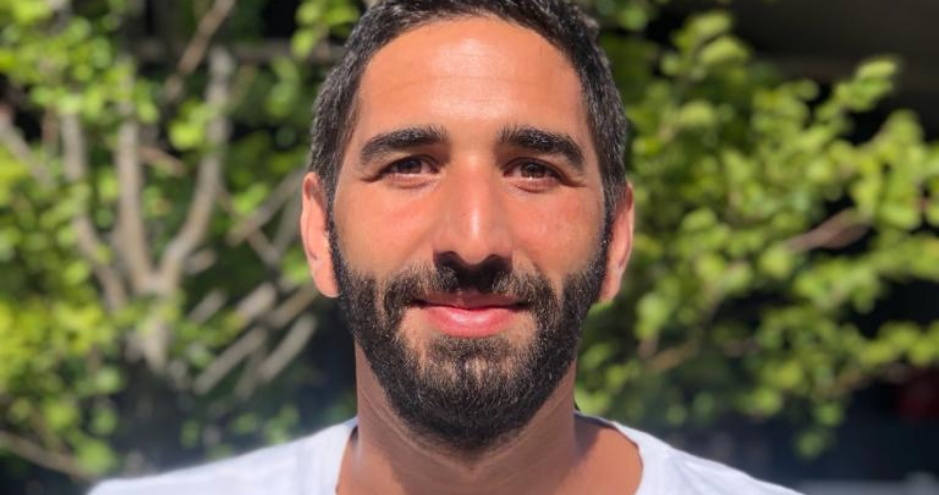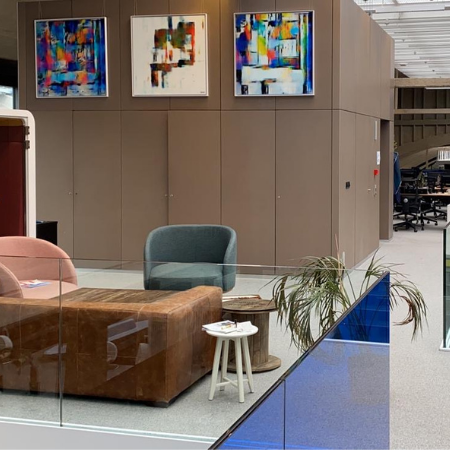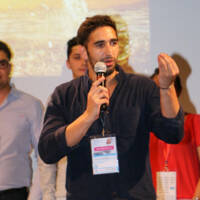[HEC Incubator] Mathias Abramovicz deconstructs the myths of our entrepreneurs!
We are very proud of our startups, but also of our mentors and the professional speakers who accompany them! Portrait of Mathias Abramovicz.

Sports coaching, management of the social and solidarity economy, strategy, information engineering, innovation, economic intelligence and risk management, Mathias Abramovicz is our multidimensional expert who shares his knowledge gained through his many professional experiences.
Self-taught, with a varied background, he decided in 2011 to set up his first company in audiovisual production (FACT. Production), then a second one in web/mobile development (Mawii LTD) and finally the latest one: Ignited Kingdom, a strategy and innovation consulting company.
In what context do you work at HEC Paris and more specifically at the HEC Incubator?
I've been involved in HEC programs for almost 5 years, working on seed, growth and scale-up programs. I am part of the pedagogical team of the Startup Launchpad program created and directed by Guillaume Le Dieu de Ville.
This program allows HEC, Ecole 42 and Polytechnique students to launch their startups and acquire their first customers in 9 weeks. Within this framework, I mainly develop methods to validate market opportunities, customer needs and go-to-market. I am also involved in the ESS Accelerator managed by Emma France, where my work is more operational. I help companies grow their revenue, optimize and automate their processes and implement their spin-off strategies.
Within the HEC incubator my involvement is two fold. On one hand, I have a coaching and mentoring role. I help startups validate their business model, develop a result-oriented culture and manage their activity. Together, we test commercial actions, improve customer trajectories and identify the objectives and performance indicators to be followed.
In parallel, I collaborate with Antoine Leprêtre (Director of the HEC Incubator) and his team on the development of the Incubator. The objective is to enable the program to increase its support capacity while strengthening the monitoring and networking effect. My work consists in creating scoring and evaluation tools to select start-ups at the entrance of the Incubator and to direct the incubated companies towards experts and financiers relevant to their market and level of maturity.
Why did you choose to take on this role?
There are two things that motivate me in this activity.
My first motivation is to share my knowledge, I want to accompany people in order to help them emancipate themselves in the best possible way. By sharing lessons from the field and from environments completely different from their own, I believe I can help them develop their critical spirit, consider other points of view and give meaning to their actions.
My second motivation is more of an intellectual nature. In my activity, I develop many methods combining strategy, innovation and results. Being at the heart of HEC's entrepreneurial programs allows me to test and improve these approaches on a large playing field and to get feedback very quickly.
In your opinion, what are the special features of the HEC Incubator startups?
I would say it's diversity, in every respect:
- Diversity of stages of maturity: we support startups in the process of developing their product or acquiring their first customers and scale-ups with dozens of employees and which are already generating a significant turnover.
- Diversity at the level of sectors/markets: from food to energy to supply chain.
- Diversity of backgrounds: there is real diversity in terms of age, training, experience and life paths. This diversity is also reflected at the level of the ecosystem itself, in the profiles of the experts and the people accompanying the startups. This diversity seems to me to be a fundamental asset.
What do you see as the incubator's strong point?
The challenge is to have a comprehensive and ongoing program which enables us to support start-ups at every stage of their development, from the emergence of an idea to economic and international development.
The entrepreneurial experience at HEC is built around this progressive and pedagogical path, which makes it possible to articulate and create more meaning between each program:
START (acculturation programs) - LAUNCH (Startup Launchpad) - BUILD (Incubator) - SCALE (Accelerator). From my point of view this is something quite unique.
In addition, the HEC network is a breeding ground that allows startups to meet top names in growth-hacking, product management and finance. These people come to share their experiences, help to obtain client meetings, share their contacts...
For me, this ecosystem is HEC's greatest strength, and in particular the Incubator's, because it acts as a catalyst for development and impact. This is what makes this entrepreneurial program a much more powerful springboard than anything else we can see elsewhere.
What is the advice you give most often?
My role is to deconstruct myths. Everyone wants to live a success story, but there are essential steps to follow and a lot of work to do beforehand.
I generally give advice that is purely logical. What I try to tell startups is not to rely solely on their intuition but to rely on tangible data collected in the field. This mainly involves learning to listen to their clients, asking them questions in order to identify their real needs. This is the basis of everything. Before even thinking about the product, you need to understand what basic need it must meet.
What are the most common mistakes made?
This ties in with the advice I explained earlier. The main mistake entrepreneurs make is that they build a product from an idea without checking whether there is a sufficiently important customer need. This validation phase of the market opportunity is very often avoided because it is tedious and unsexy. But we notice more failures among startups that miss this fundamental step.
In your opinion, what is the ideal composition of a startup team?
I think you need a leader: someone who is not afraid to take risks while being able to question himself in view of the tangible data that the startup will collect. A business leader has to navigate in the unknown and orient himself using the information and weak signals he is going to pick up.
A commercial profile/expert in the field is a real asset. Someone who has worked in the sector, who knows how the market is structured and who the key players are. Generally, the problem with start-ups launched only by young working people is the lack of experience and knowledge of industry codes and value chains.
A startup is an emotional elevator and it requires making choices in a hurry without confusing the team. This ability to manage pressure and to remain lucid in complicated moments is an essential quality for founders.
Which startups have surprised you the most?
I very much appreciate the following founders, whom I consider to be virtuous examples for young people starting up. Resilience, hard work, tact... far from the buzz, we are dealing with strong business leaders!
- My Job Glasses by Émilie Korchia and Frédéric Voyer,
- Backacia by Lucile Hamon,
- Ekestrian by Claire-Aline Quantin,
- High Flyers Agency of Eugénie Chaltiel and Mathilde Néau,
- Denis Cohen's DropContact.
Do you have other activities outside of teaching? Your accompaniment? Tell us all about it...
My main activity is strategy and innovation consulting which represents 60% of my time.
My philosophy is quite simple: move from strategy to measurable results.
I help companies to find their way through uncertainty and define operational strategies to reposition themselves, launch new service offers, drive innovation and measure performance.
One last tip for the road?
"Get your bearings to decide!"
In these times of uncertainty, we try far too hard to anticipate the future when we must not lose sight of the essential: understanding what already exists in order to define strategies and actions.
The challenge of the current crisis is not necessarily to succeed in anticipating what will happen in the more or less near future, but rather to be able to react and reposition oneself very quickly in order to survive.
We must remain optimistic and opportunistic with regard to our environment and not get stuck in our beliefs in order to act in the best possible way according to what already exists.

